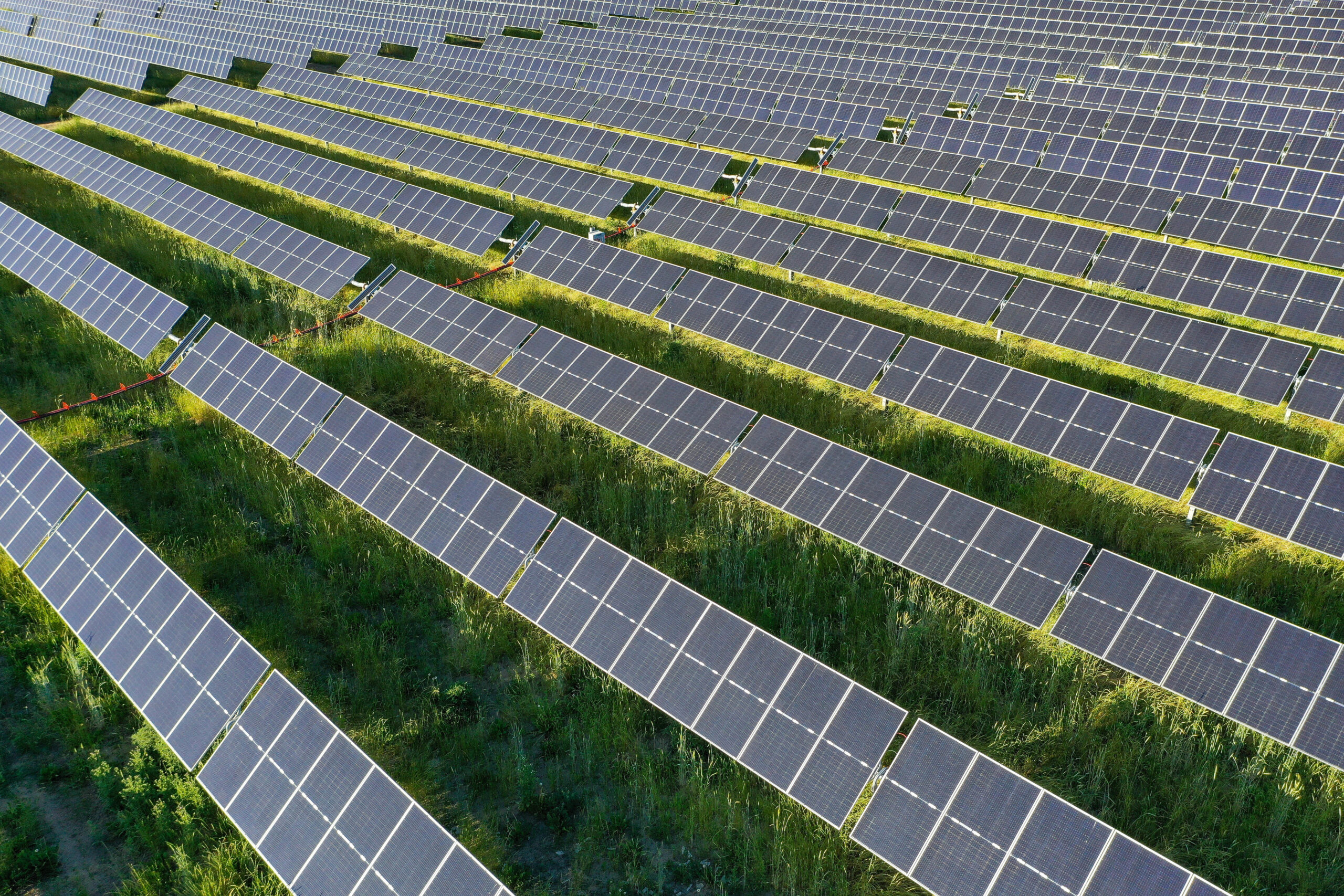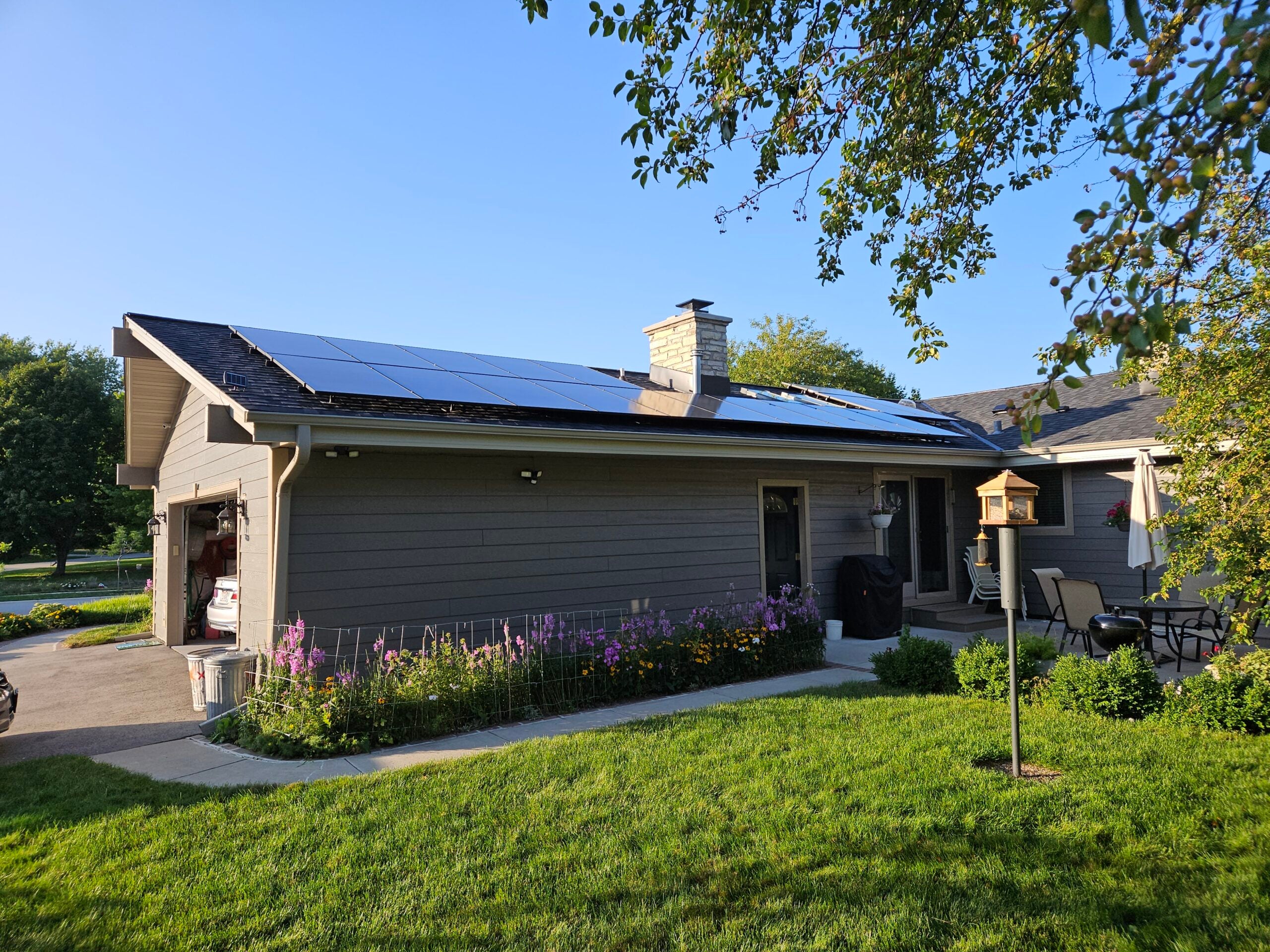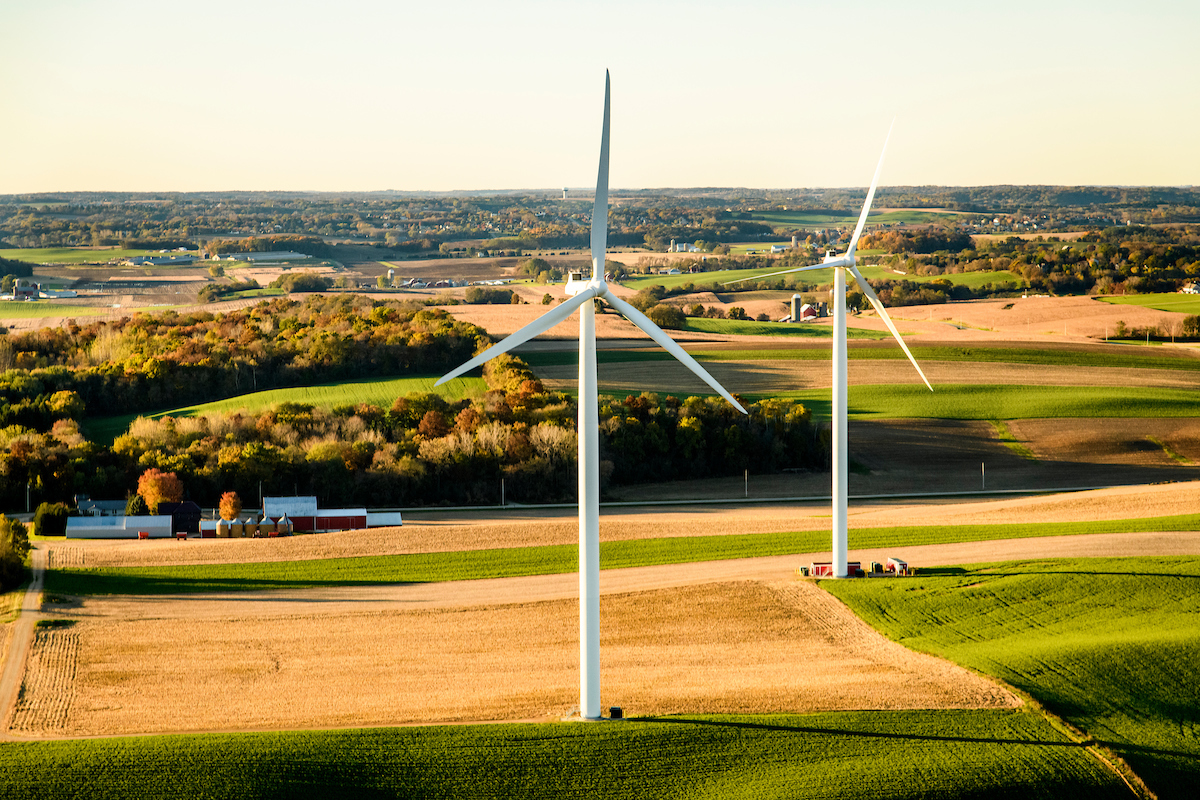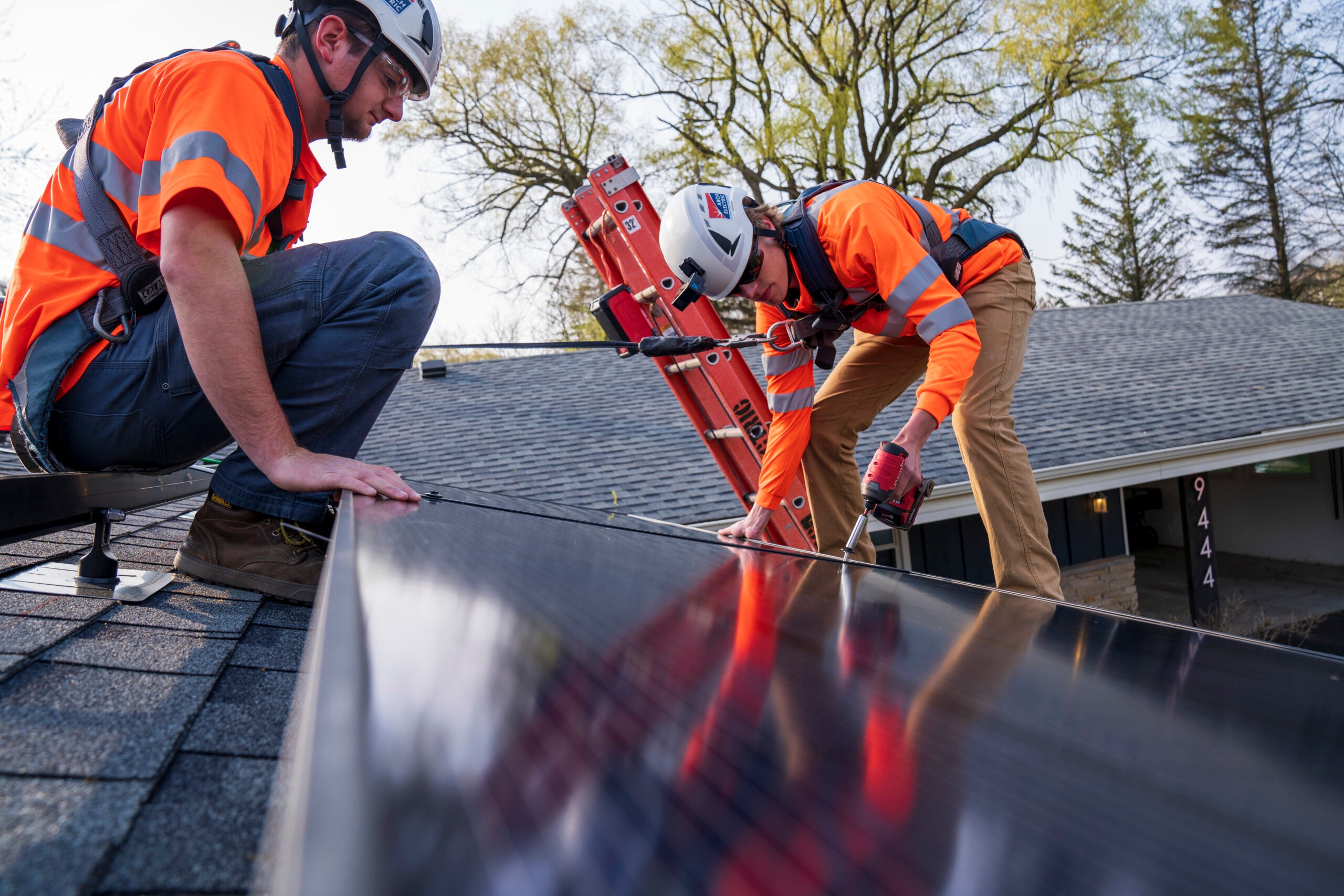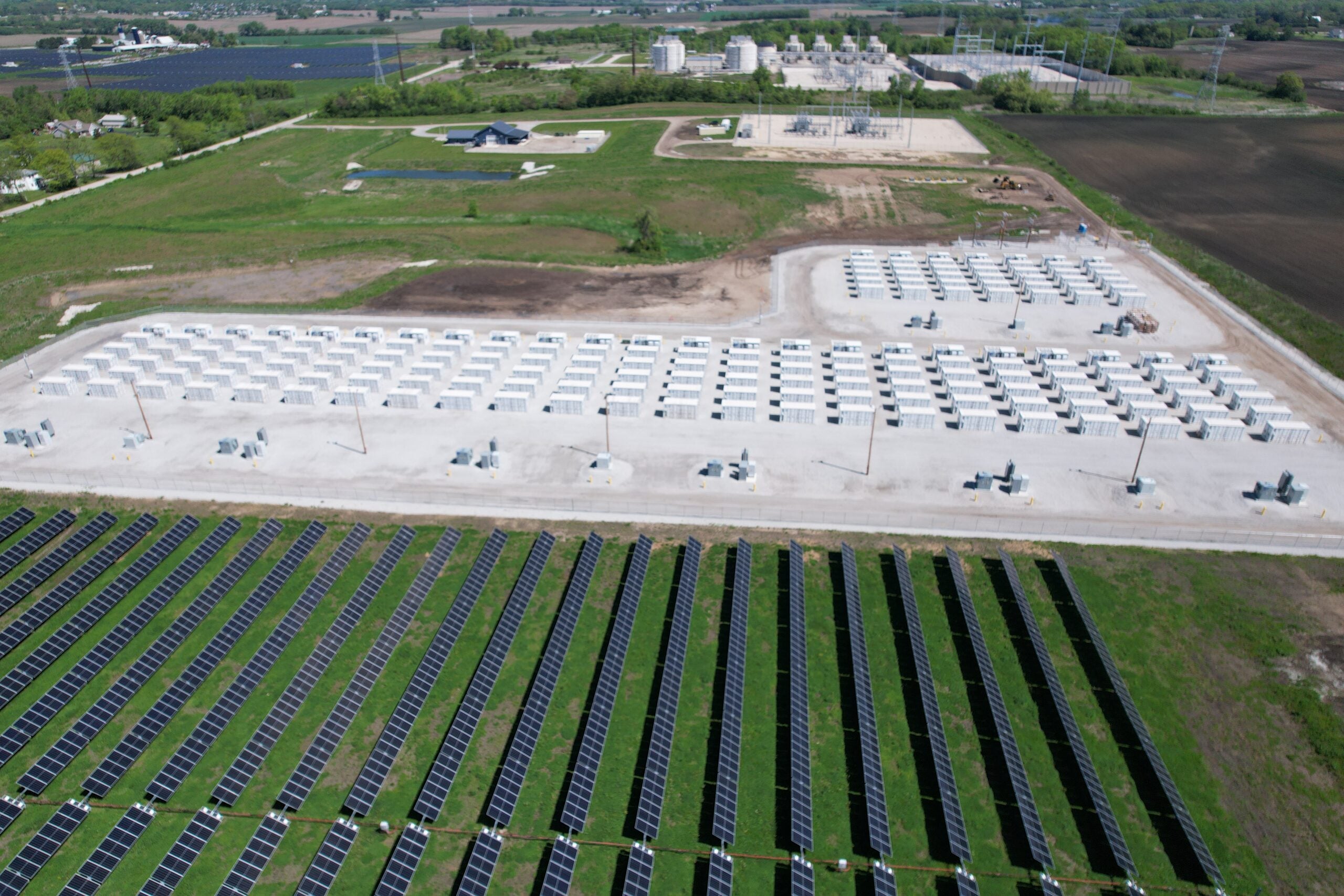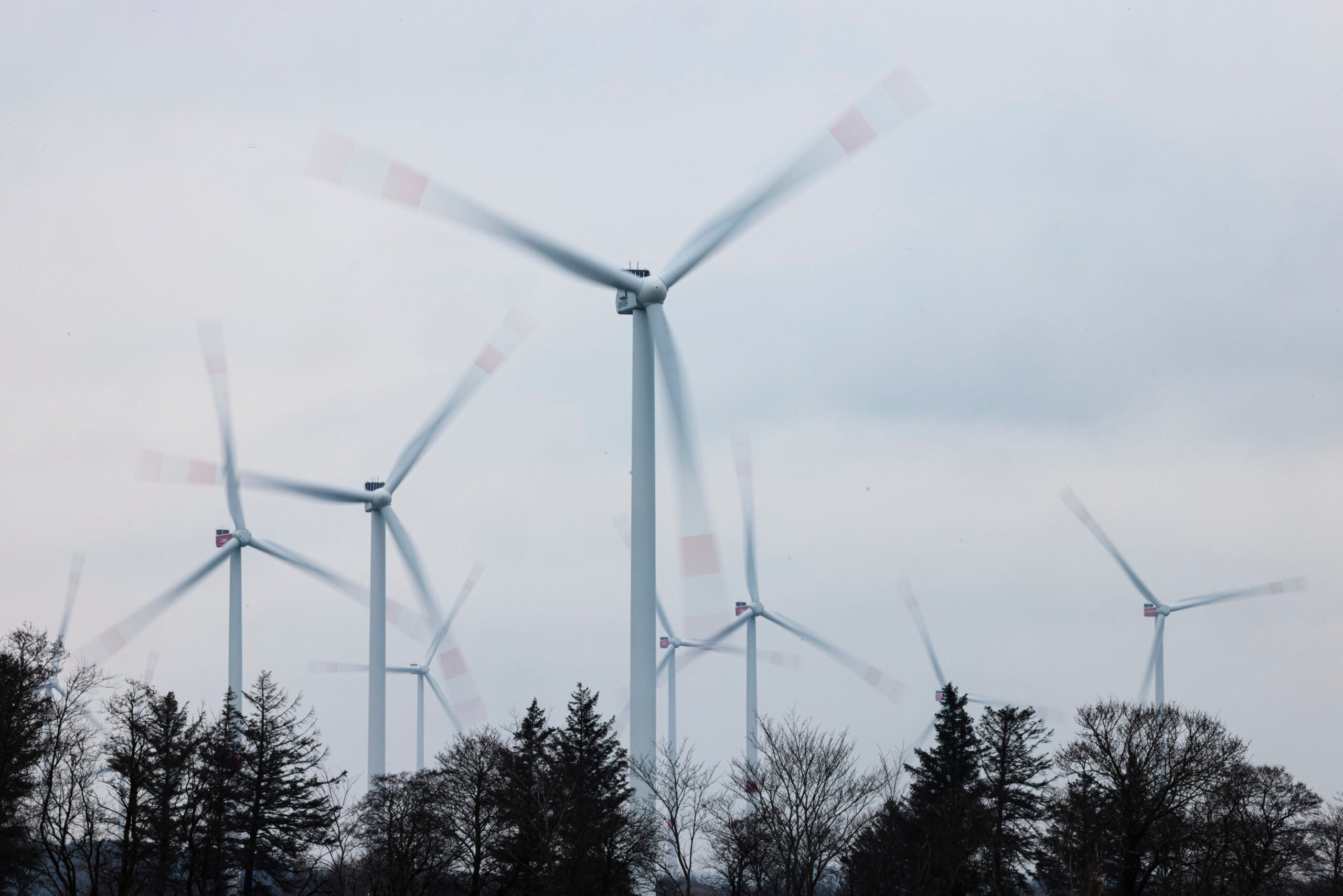When construction began on the Badger Hollow solar farm in 2019, busloads of out-of-state workers were being dropped off in Iowa County to build the massive project.
But work continues on phase two of Badger Hollow and other solar projects across the state. Solar panels are now being erected by in-state, union labor, said Kent Miller, president of the Wisconsin Laborers District Council.
Miller says this is possible because of the Inflation Reduction Act, signed one year ago.
News with a little more humanity
WPR’s “Wisconsin Today” newsletter keeps you connected to the state you love without feeling overwhelmed. No paywall. No agenda. No corporate filter.
“There is a lot of talk and chatter about Bidenomics and I can tell you, there is a big Bidenomics boom going on in the Badger State,” Miller said.
The landmark legislation, signed Aug. 16, 2022, invests in climate, clean energy and regenerative agriculture. The law provides clean energy tax credits for energy efficient commercial buildings, homes and electric vehicles.
Developers and utility companies who hire registered apprentices and incentivize prevailing wages are also given tax credits, which has changed how Wisconsin job sites look, Miller said.
At the Paris Solar Farm in Kenosha County, Miller said there are about 150 union workers on the job and 43 people in apprentice programs. Most of the apprentices are people of color, Miller said.
“We’re bringing in folks who have had little experience or knowledge into the construction industry,” Miller said. “By the time the project is completed, they could be pretty close to being a journey person.”
President Joe Biden was at the Ingeteam manufacturing company in Milwaukee Tuesday touting the Inflation Reduction Act.
Biden said since the act was signed, Wisconsin companies have committed to spending more than $3 billion in manufacturing and clean energy.
But the bill isn’t universally supported. Every Republican in Wisconsin’s Congressional delegation voted against the Inflation Reduction Act. And while Derrick Van Orden wasn’t a member of Congress at the time, he tweeted his opposition to the bill.
During a press conference before Biden’s visit, Brian Schimming, chair of the Republican Party of Wisconsin, said Wisconsin households are “poorer” as a result of Bidenomics.
Wisconsin Republican lawmakers have introduced a variety of bills that target clean energy.
They have said they wanted to stop Wisconsin from following at least seven states, including California, that plan to ban gas-powered vehicles. States like New York have also sought to ban natural gas stoves and furnaces.
The state’s clean energy plan aims to have all electricity consumed within the state to be 100 percent carbon-free by 2050. Currently, Wisconsin’s largest single source of energy is natural gas.
Heather Boushey, a member of President Biden’s Council of Economic Advisers, acknowledged that the carbon-free goal is lofty, but said Wisconsin companies are already committing.
“These are smart economic investments,” Boushey said. “When you look at the nation overall, the president has made bold and important goals. But there are a lot of different interim goals. If we make these investments on the public side, as well as encourage private sector firms to invest in clean energy, then certainly these goals are achievable.”
Allison Carlson, president of the Wisconsin Local Government Climate Coalition, said there were early opportunities when the Inflation Reduction Act was signed for local communities including broadband expansion.
As the law enters its second year, small businesses, local homeowners and municipalities will have even more opportunities, Carlson said.
Those opportunities include:
- Tax exemptions for local governments for implementing clean energy projects.
- Tax credits for home efficiency improvements or for purchasing qualified electric vehicles.
- Wisconsin will apply to receive funds to provide rebates to single family and multifamily households on energy efficiency upgrades, with a portion of funds dedicated to low income and disadvantaged communities.
Carlson said every community is in a different stage of its clean energy transition.
“We’re really trying to help our communities where they are in their journey to see how they can leverage the Inflation Reduction Act to see how they can benefit from a clean and climate ready economy,” Carlson said.
Wisconsin Public Radio, © Copyright 2025, Board of Regents of the University of Wisconsin System and Wisconsin Educational Communications Board.

